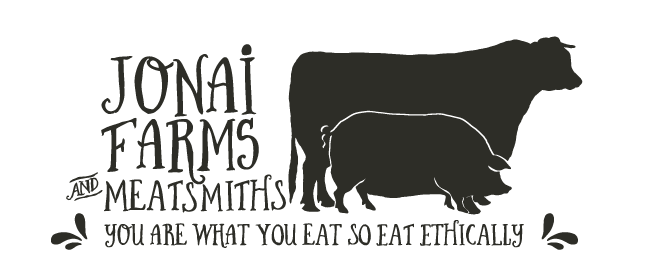AS AT 25 MAY 2024
FUNDS RAISED = $67,980 OF $150,000
FUNDS SPENT = $33,345
We need to raise $150,000 to build a vehicle-based abattoir, and we are committed to feeding local communities rather than banks and shareholders. Our years of lived, read, and listened research into what makes and breaks small-scale farming constantly affirm our belief that one of the most important keys to a successful farming livelihood is to avoid debt. If we had to service a debt through the lean times as well as the bountiful, we might not make it. Our farm is built on relations, not transactions, which permeate every aspect of our ecosystem from sourcing waste-stream feed and being a CSA farm, to sharing land rent-free with Tumpinyeri Growers and exchanging labour with Pig & Earth Farm in our boning room.
In 2013, we raised $31,750 to build the on-farm butcher’s shop, and in 2014, $35,600 to build the commercial kitchen and curing room. We used Pozible for those campaigns, and rewards exchanged for pledges included meat and workshop attendance.
This is a much more significant sum to raise, and as we have been a community-supported-agriculture (CSA) farm for a decade, all but about 5% of our meat is already spoken for. We are offering pre-purchases of Tammi’s cookbook - ‘Eat Like the Jonai’, and have just one Speckleline hide left for sale (as Hardwicks no longer allow us to retain hides from slaughter).
Join us for a spectacular nose-to-tail feast hosted here on the farm in partnership with Pig & Earth Farm, Bar Merenda, and La Pinta on Monday 3 June 2024, with loads of support from other farmers, chefs, CSA members, and generally excellent humans! These legends have also donated an incredible range of prizes for a raffle - get a ticket to be in the running for some amazing dinners, wines, pastured meats, and more!
As people who have dedicated our lives to food sovereignty and agroecology (Tammi has been president of the Australian Food Sovereignty Alliance (AFSA) for ten years, donating half her time to advocating for everyone’s right to participate in food and agriculture systems), we share everything and practice radical transparency about both our successes and our failures (check out the farm blog for those stories). We have been sharing our documentation in ad hoc ways with other farmers for years, and now are collating them here for anyone to access.
The Meat Collective @ Jonai will serve not only us, but also several other local farms with whom we are in relations, and operate as a not-for-profit solidarity economy on degrowth principles. We are strongly guided by ethics of fairness – central to which is a notion of ‘enoughness’. We talk about each of us receiving and giving mutual aid ‘commensurate with need and capacity’. If sustainability is dealing justly with future generations, it must obviously start NOW with current generations in our dealings with the human and more-than-human world.
In practice, what that means for the abattoir is that fees will be democratically set by all farmer members of the collective to cover costs of operation (energy, compliance, consumables, etc) and ensure all meatsmiths earn a decent livelihood. Critically, no surplus value will be extracted from the system - there are no ‘investors’ and no financial returns beyond the wages earned by those of us doing the labour. The returns are so much more than money, and include beneficial environmental custodianship, highest animal welfare outcomes, and farmer autonomy and well being.
While fundraising for our micro-abattoir to enable the livelihoods of local farmers here in the southern highlands of Djaara Country, we are busy supporting other communities to do the same in communities across Australia, while AFSA is advocating for legislative reform to make it easier to build and operate slaughter facilities such as ours - what Tammi calls the ‘intrinsic infrastructure of agroecology’. You can read about AFSA’s proposed reforms to the Victorian Planning Provisions here.
You can find below our successful development applications for both the pig farm and the abattoir, with associated materials such as our environmental management plan (EMP). These documents took a lot of time and knowledge, and some call this Intellectual Property (IP) - but we think protecting that from others’ use or charging a fortune for it is a major barrier to democratic participation and equitable distribution of resources, except in the case of Indigenous Peoples protecting their traditional and cultural knowledge and genetic resources from exploitation by colonial capitalist powers.
Providing financial support for us to build the micro-abattoir will further enable our efforts to radically transform the food system from the ground up. And if you are not in a position to offer any cash to the project, we are grateful for any way you can help spread the word, both for the success of the Meat Collective @ Jonai, and to see more meat collectives emerge across Australia!
Imagine if communities all around Australia and the world pooled our resources in this way to reclaim control of the means of production, and the means of communication, energy, transport – what a wonderful world that could be. <3

